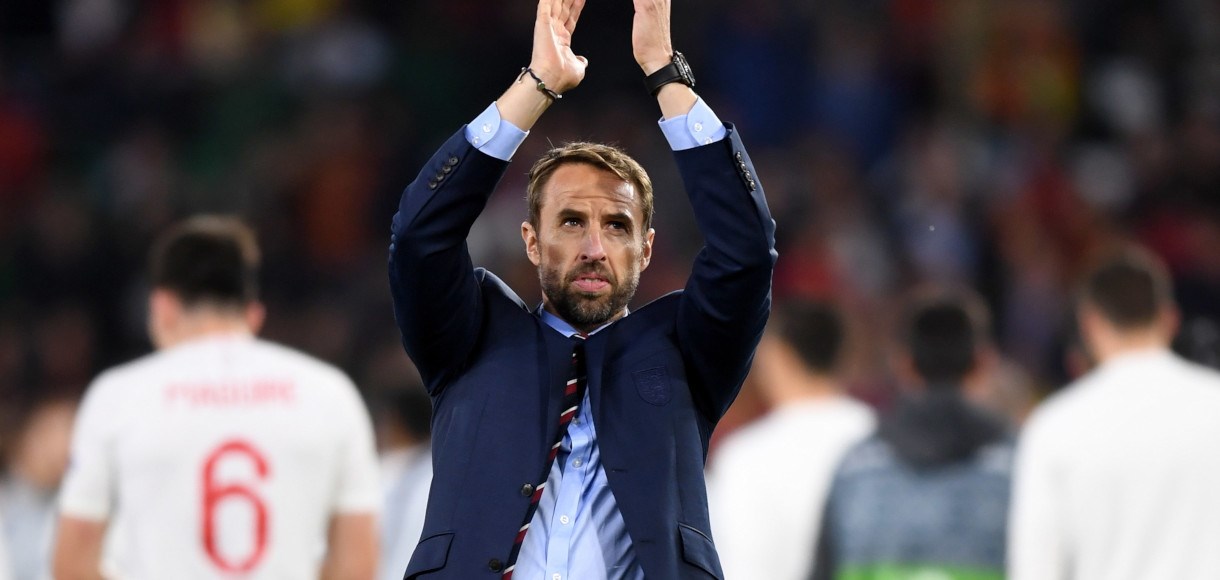5 in, 5 out: How we would shake up England's Euro 2020 squad

With Gareth Southgate's side in need of upgrades in defence and midfield, these are the changes that we would make to the next England squad.
Kyle Walker -> Aaron Wan-Bissaka
In his five-year stint as an England regular, Walker’s stock has never been lower.
The Manchester City defender was regularly caught out of position against the Netherlands in the Nations League semi-final, a trait that also irritated Pep Guardiola this season, while his attacking contribution was shown up by Trent Alexander-Arnold in the third-place play-off.
But Walker would still be a guaranteed squad member were competition for England’s right-back spot not tougher than in any other position.
Alexander-Arnold must now be first choice, and Wan-Bissaka – linked with moves to the vast majority of the Premier League’s top six after a barnstorming 2018/19 season – is ready to take his place in the 23.
Eric Dier -> Harry Winks
England’s sloppiness in playing out from the back against the Netherlands stemmed from the lack of options in midfield, and – though he didn’t start that game – replacing Dier is the first of several changes that should be made to solve that long-term issue.
It is hard to remember the last time he played really well. His 2018/19 season was interrupted by injury, but it is telling that where he was once Mauricio Pochettino’s trusted lieutenant on the pitch, he hasn’t started three consecutive Spurs matches since December.
In his place, Gareth Southgate must turn to club team-mate Winks , who – while no Frenkie de Jong or Luka Modric – is the Englishman most capable of running the game from the base of midfield.
Not that Southgate needs telling. His assistant Steve Holland said last week that Winks “is a player we have been waiting for in that position – had he been fit, he would have been in the squad 100 per cent”.
Fabian Delph -> Jack Grealish
These two briefly played together for Aston Villa in 2015, but four years on from Delph’s move to Manchester City he looks sure to be overtaken by his former team-mate.
Unlike Delph, Grealish’s skillset – excellent close control, dribbling and incisive passing – matches perfectly what England require from their midfielders at Euro 2020 .
The 23-year-old ranked fourth for key passes and fifth for dribbles in the Championship last season, one of only two players to rank in the top 10 for both. That he was fouled 4.7 times per game, with Dan James second on just 2.7, is evidence of his technical ability.
Delph is one of five players in Southgate’s ‘leadership group’, and a popular member of the dressing room, but that isn’t enough to save him.
Dele Alli -> James Maddison
In truth, Dele is probably too good not to rediscover his best form ahead of Euro 2020, but right now he is the most vulnerable to Maddison , who must be picked.
The 22-year-old has presumably only been missing out on senior squads in order to take part in the Under-21 European Championships.
He created more chances than any other Premier League player last term, while ranking top for xA of all Englishmen. Like Winks and Grealish, he is more comfortable in possession than any of England’s midfielders in Portugal in the last week.
Dele’s tally of goals and assists in competitive England games in the last 18 months stands at one – an unfavourable comparison.
Jesse Lingard -> Phil Foden
Foden completes our midfield revolution.
He may not have played many Premier League minutes, and may not be in line for many more until David Silva leaves Manchester City, but England are in no position to be fussy.
The 19-year-old is the only City player to rank in the top four for key passes and dribbles per Premier League minute last season, and it would seem a waste to discard a midfielder receiving daily tuition from Pep Guardiola in exactly the characteristics England need.
Dropping Lingard – who scored in back-to-back England matches in November – feels harsh, but England mustn’t be afraid to make big calls.
Back any of these players to make England's Euro 2020 squad here.
Visit Betway's football betting page.




































